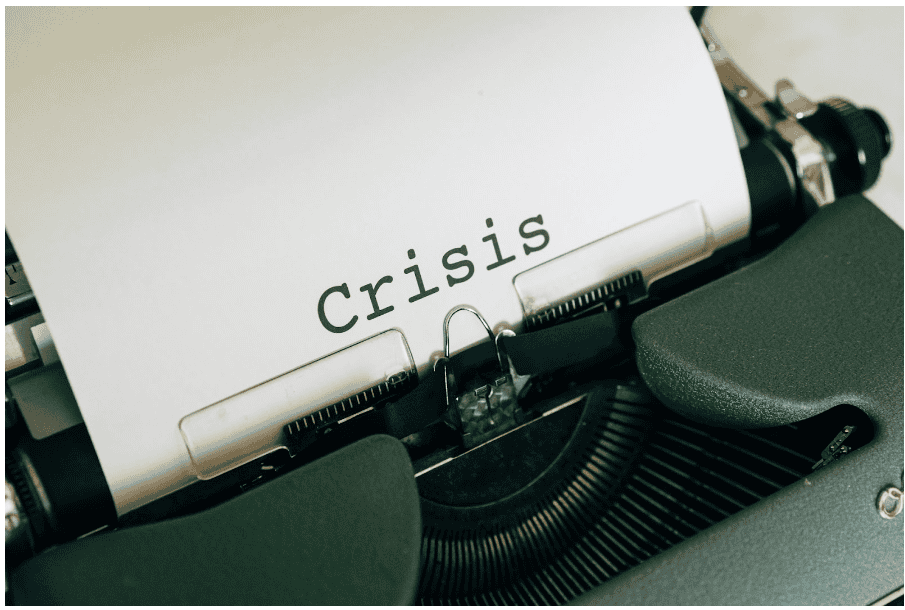The Ultimate Checklist for Small Business Crisis Management
In today’s dynamic and unpredictable business landscape, being an entrepreneur means being prepared to face challenges along the way.
All types of businesses have their own set of challenges, but nothing causes more anxiety than a crisis. Large corporations have their own crisis management teams, which is equally significant for small and medium-sized businesses.
Due to their limited resources, they’re arguably more vulnerable to external and internal risks. This is why they should take the necessary steps to protect themselves from a crisis, such as having a separate account for business and personal transactions, having a plan in case of emergencies, and maintaining a communication protocol.
What is Crisis Management?
Crisis management is the process of handling and mitigating a crisis that may affect an organization, its stakeholders, or the general public. It involves identifying potential risks, creating a plan to prevent or mitigate them, and effectively responding to a crisis.
As an entrepreneur, having a solid crisis management plan is crucial to ensuring the survival and success of your business. In today’s fast-paced and highly connected world, it is important to be prepared for any potential crisis that may arise, whether internal or external.
Why Is Crisis Management Important for Small Businesses?
A common misconception about crisis management is that it’s only necessary for large corporations. Because crises will have a more significant impact on smaller businesses, it’s vital that these effects be minimized through proactive crisis management strategies.
Doing so will help the organization bear the brunt of the crisis and recover more quickly. Consequently, they also safeguard their brand reputation and keep their customers aside from ensuring business continuity.
It’s easy to assume that crisis management is a luxury reserved for organizations with deep pockets and ample resources; however, it’s a vital investment for every business. Budget constraints can be an issue, but strategic resource allocation can help alleviate this pressure and lead to cost savings and other long-term benefits that far outweigh the costs.
The key is to be proactive instead of reactive. With an effective crisis management plan in place, a business—regardless of size—can mitigate or even avoid potential adverse effects that could be more costly to resolve once they occur.
Crisis Management Strategies
More organizations are realizing the importance of crisis management as an essential part of their business plan.
In 2023, organizations have stated that they plan to increase investment in three areas in the next two years: cyber resilience, crisis management, and emergency management. Focusing on the strategies below will help you get started on your own crisis management plan for your business.
Risk Assessment and Mitigation
Every business should be able to identify potential vulnerabilities and devise ways to address them. Through careful evaluation of internal and external factors, targeted strategies to mitigate potential crises can be developed.
Identified risks should also be categorized depending on their impact, namely, risks impacting cost, risks impacting performance, and risks impacting schedule. Proper monitoring of risks and their effects should also be done so changes that affect the impact of risk can be identified.
Resource Allocation and Prioritization
Because smaller organizations have smaller budgets, it’s also more important for them to allocate resources wisely during a crisis. You should prioritize risks based on their relevance to the business; some mitigation strategies are better suited for certain types of risks than others.
Resources should be allocated so that vital business operations can continue and potential negative impacts can be identified and addressed. It can also be helpful to look at what similar companies do during or to avoid a crisis to see what approach works for your business.
Communication and Stakeholder Engagement
Keeping communication lines open during a crisis ensures that everyone is on the same page. Establishing clear communication channels with employees, customers, and stakeholders is crucial for providing updates, reassurance, and managing expectations.
Fostering trust is essential during times of crisis. You should leverage available technologies, like social media, private messaging, and dedicated crisis management platforms, to ensure transparency through communication at all times.
Continuity Planning and Business Resilience
Businesses of all sizes should always have a clear contingency plan that outlines the steps to take in a crisis. This plan should include the required steps for a variety of scenarios so potential disruptions can be anticipated. Business continuity provides backup, recovery, and emergency response plans, while business resilience is a more proactive approach to mitigation that involves dynamic leadership, operational strategies, and long-term goals.
Ultimately, the goal is to minimize downtime and curb the impact on operations. A culture of resilience also ensures adaptability, which helps the organization respond to unexpected challenges.
How to Create A Crisis Management Plan?
A crisis management checklist should help you create a comprehensive framework that will help your business prepare for and manage crises. Your crisis management plan should include:
- A clear chain of command
- Straightforward roles and responsibilities
- Communication strategies
- Resource allocation plans
- Evacuation and safety procedures
#1) Identify risks: List potential crises relevant to your business
Crisis management begins with risk management. You should identify potential risks that could harm your business. These can include natural disasters, cyber-attacks, financial problems, product recalls, or negative publicity.
You should conduct regular risk assessments to effectively identify risks and vulnerabilities in your business. This will help you understand which areas need improvement and where potential crises may arise.
#2) Analyze impact: Assess the severity of each risk to assist in prioritization
Once you have identified potential crises, assess their potential impact on your business. This risk analysis will help you prioritize and allocate resources accordingly.
Consider the severity of each potential crisis, the likelihood of it occurring, and how long it may affect your business. This will help you determine which risks require immediate attention and which can be managed over time.
For example, a natural disaster such as a hurricane may significantly impact your business if you are located in an area prone to these types of events. On the other hand, a cyber-attack may have a lower impact but could still cause significant damage to your company’s reputation.
#3) Develop strategies: Create detailed action plans for each scenario
Develop specific response plans for each potential crisis based on your risk assessment. These plans should outline step-by-step procedures for handling the crisis and mitigating its impact on your business. It is important to involve key stakeholders and department heads in this process, as they will have valuable insights and input to contribute.
Response plans should also include contingency measures if the initial plan does not work or the situation evolves. These measures may include alternate communication methods, backup systems, and designated emergency contacts.
Reviewing and updating these response plans regularly is important, as risks and potential crises can change over time.
#4) Assign roles: Define who does what in the crisis management team
In a crisis management plan, assigning clear roles is crucial for an effective response. It’s important to form a dedicated crisis response team comprising individuals with specific responsibilities and expertise.
This crisis management team should include an assigned crisis manager, key decision-makers, and representatives from different departments to ensure comprehensive coverage and coordination. The team can efficiently act and make informed decisions during a crisis by defining roles and responsibilities.
Regular training sessions and drills are also essential to ensure that everyone knows their role, builds critical crisis management skills, and responds quickly and effectively during a real crisis.
#5) Communicate: Ensure everyone understands the plan and expectations are aligned
In any crisis, communication is key. It is crucial to keep all stakeholders informed about the situation and what actions are being taken. This includes employees, customers, suppliers, investors, and the general public.
Having clear communication channels is vital for both internal and external communication:
- Internal communication: Keep your team informed with clear, consistent updates. Use multiple channels to ensure everyone receives updates and other messages. This could include email, messaging platforms, or regular meetings.
- External communication: Keep your stakeholders informed through various channels, such as social media, press releases, and website updates. Address any concerns or questions promptly and provide accurate information.
Transparency and honesty help maintain trust and manage your business’s reputation.
What to Do After A Crisis Has Occurred?
In the aftermath of a crisis, small business owners may find themselves feeling lost and uncertain about what to do next. However, it’s important to remember that there are steps you can take to start rebuilding and moving forward.
Remember, crises are a part of life, but they don’t have to define your business’s future. With patience, resilience, and hard work, you can overcome even the most demanding challenges and emerge stronger than ever.
#1) Assess the situation: Take a step back and evaluate the crisis objectively
First, assess the situation and thoroughly review the crisis. Identify what worked, what didn’t, and what can be improved to ensure an effective crisis response in the future. This will not only help you better understand the root cause of the crisis but also provide valuable insights for future prevention.
It’s essential to remain calm and rational while assessing the situation. Avoid making hasty decisions or jumping to conclusions before gathering all the necessary information. Take into account different perspectives and involve key stakeholders in the assessment process.
Remember, every crisis is unique and requires a tailored response. You can determine the best course of action for your business by carefully evaluating the situation.
#2) Develop a plan of action: Prioritize tasks and delegate responsibilities
Once you have assessed the situation, it’s time to develop a plan of action. Identify critical tasks that need immediate attention and prioritize them accordingly. Determine what resources are available to you and prioritize what needs to be done first.
Don’t hesitate to delegate responsibilities to alleviate some of the pressure and ensure that tasks are being completed efficiently. Ensure everyone is on the same page and understands what needs to be done. Regularly check in with team members to monitor progress and address any challenges that may arise.
Remember, teamwork is key during a crisis. Encourage collaboration and open communication among team members to ensure a smooth execution of your plan.
#3) Return to normalcy: Get back to regular operations
Once the immediate tasks are completed, it’s important to take steps for the return to normalcy. This may include developing a recovery plan, communicating with stakeholders and customers, and assessing any damages or losses to members’ well-being during this transition period.
Offer support and resources for anyone who may be struggling emotionally or financially due to the crisis. Also, take care of yourself and your team during this time – self-care is crucial in maintaining a solid and resilient team.
Remember that returning to normalcy may not happen overnight. Being patient and understanding is important as everyone adjusts to their regular routines.
#4) Learn from the experience: Use this as an opportunity for continuous
Reflect on what worked well and what could be improved during the crisis. Update your crisis management plans using these insights to better prepare for future emergencies.
Use lessons learned to create a more robust crisis management plan, provide employee training, and invest in new technologies for better crisis protection. Take this experience as a learning opportunity to become more resilient and better equipped for any future crises that may arise.
Key Considerations For Navigating the Crisis Management Process
Next, let’s explore some key considerations to keep in mind while navigating the crisis management process:
Financial Contingency Planning
Let’s think about how your organization can plan for the potential financial impacts of a crisis or even a financial crisis itself.
Emergency Funds and Financial Management
Set aside emergency funds to cover unexpected expenses during a crisis situation. This financial cushion can help keep your business afloat.
Having a separate account for your business ensures that you know exactly where your money goes, making bookkeeping easier and giving your business an air of professionalism and credibility. It protects your personal funds in case of a crisis and provides more credit options like business loans, overdrafts, and business credit cards. A business account also provides purchase protection to your customers, increasing trust and customer loyalty.
Insurance Considerations
Review your insurance policies to ensure they cover potential crises. Business interruption insurance can help cover losses during a disaster, while liability insurance can protect your business from lawsuits. You may also want to consider cyber insurance to protect against data breaches and other online threats.
Consider additional coverage to protect your business if necessary. Further, it’s important to regularly review and update your insurance coverage as your business grows and evolves.
Legal Considerations
Also, it’s essential to review any legal considerations for your business:
Understanding Legal Obligations
Familiarize yourself with legal requirements related to crisis management. This includes health and safety regulations, data protection laws, and labor laws.
Knowing how to protect yourself legally is vital before setting up a business; this will determine whether you should set up one of these common business structures:
- Sole Proprietorship: Most entrepreneurs become sole proprietors because they require less paperwork and are simpler to set up. In a sole proprietorship, however, there’s no separation between personal and business assets and liabilities. This means that all debts and obligations of the business will be yours alone.
- Limited Liability Company (LLC): An LLC provides more long-term benefits and legal protections for a business owner. An LLC offers tax options so you can choose which tax structure works for you, and it’s a legal entity that’s separate from the business owner. This protects your personal assets in case your business is sued and frees you from any liability for your employee’s actions.
Compliance and Documentation
You should maintain detailed records of all crisis management activities. This documentation can be crucial for legal compliance and post-crisis reviews. It can also serve as a reference for future crisis situations.
During a crisis, it is essential to stay organized and keep track of all communications, decisions, and actions taken by the company. This will not only help with documentation but also ensure that all necessary steps are being taken to resolve the crisis effectively.
Business Reputation Management
Lastly, it is crucial to consider the impact of a crisis on your business’s reputation. A crisis can quickly tarnish the image and trust of a company, causing long-term damage.
Public Relations (PR) Strategies
PR strategies are essential in managing a crisis and rebuilding the company’s reputation. This can include issuing official statements, addressing concerns or misinformation, and actively engaging with the public through various communication channels.
It is also crucial to ensure that all messaging is consistent and transparent, as any discrepancies can further damage the company’s credibility.
Social Media Management
In times of crisis, monitoring your social media channels closely is crucial. By doing so, you can promptly address any concerns that arise, maintain a positive online presence, and keep an open line of communication with our community.
Your social media platforms serve as valuable tools through which you can convey vital updates and information regarding the crisis to our customers and stakeholders. By utilizing these platforms effectively, you can ensure that everyone is kept well-informed, connected, and supported.
Crisis Management: Looking Ahead
In today’s volatile business world, one thing is certain: crises will happen.
No company is immune to potential crises, from natural disasters to social media scandals. That’s why having a solid crisis management plan is non-negotiable.
It may seem like just another expense to add to the books, but let me tell you – the long-term benefits far outweigh any initial investments. Plus, think of the peace of mind it’ll give you, knowing that you’re prepared for whatever comes your way.
So don’t delay any further – take inspiration from our handy checklist and start building your crisis management plan today. Trust me, when disaster strikes, you’ll thank yourself for being proactive rather than reactive.
Let’s not forget—the best time to address a crisis is before the crisis occurs. So don’t wait until it’s too late! Take charge and protect your business now and in the future with a robust crisis management plan in place.
Remember, it’s not about if a crisis will come knocking on your door, but when. Will you be ready?







